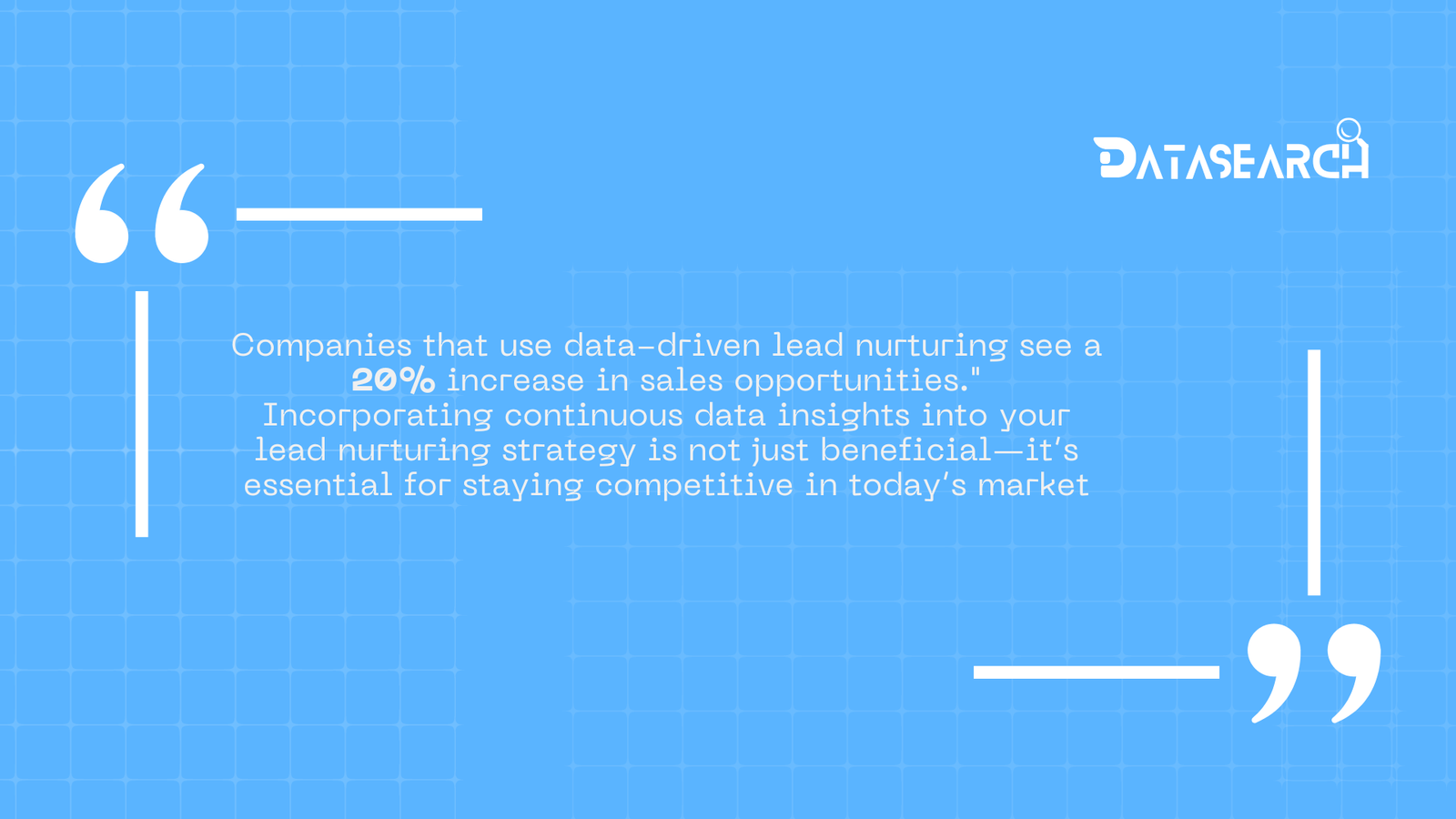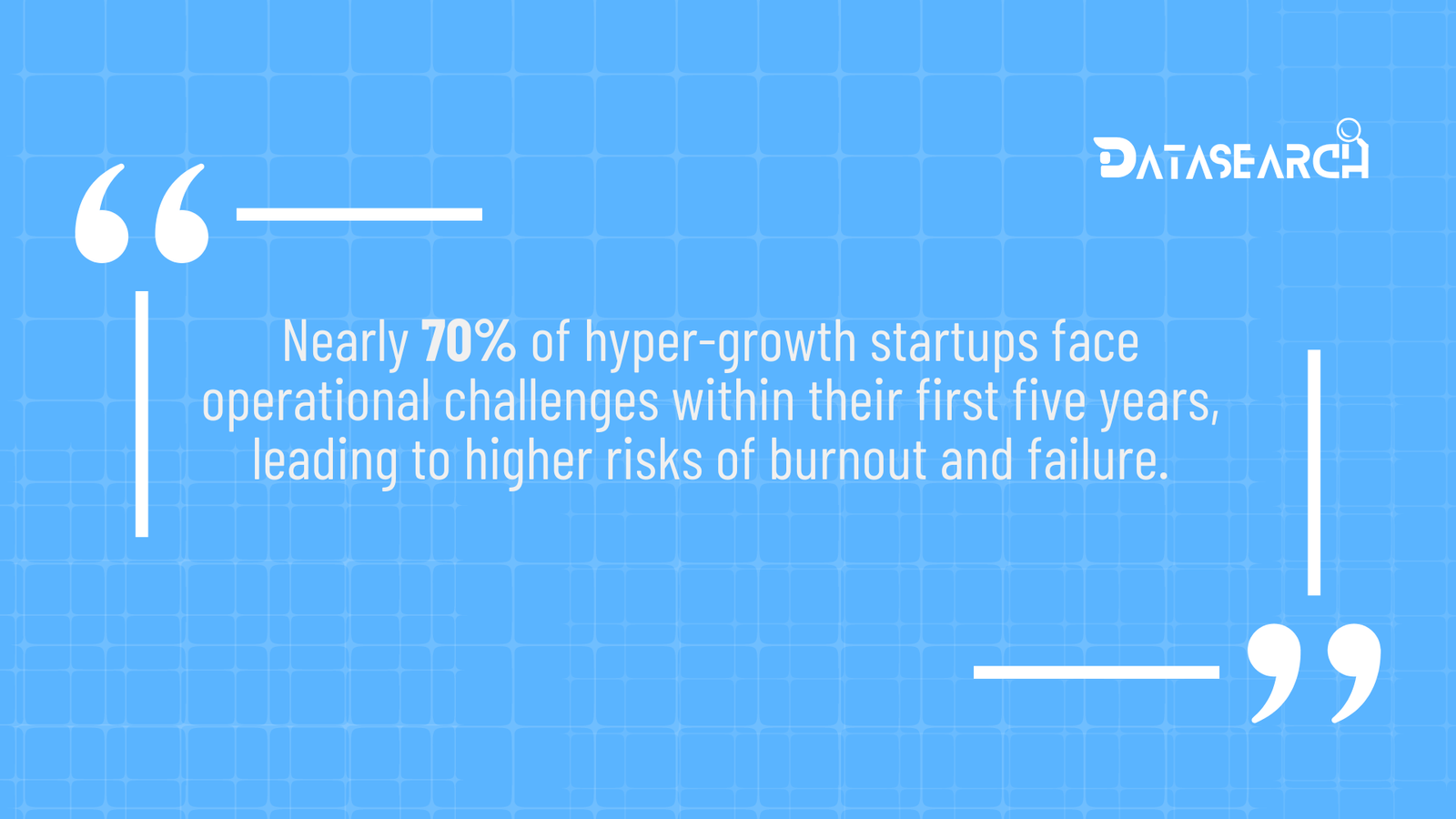In today’s data-driven marketing landscape, lead nurturing is essential for converting prospects into loyal customers. However, many businesses struggle to achieve success in their lead nurturing efforts. The common culprit? A lack of data and continuous insights. Without a steady stream of updated, relevant data, lead nurturing efforts can fall flat, leading to missed opportunities and wasted resources. Understanding the role of data in effective lead nurturing is crucial for any business aiming to improve its conversion rates and overall marketing ROI.
The Role of Data in Lead Nurturing
Lead nurturing involves building relationships with potential customers by providing them with relevant, personalized content and communications at every stage of their buying journey. For this process to be effective, it must be informed by accurate, up-to-date data. Here’s why data is so critical:
1. Personalization is Key 🎯
Personalization is at the heart of effective lead nurturing. Without detailed data about your leads, it’s impossible to tailor your communications to their specific needs, interests, and pain points. Data provides the insights needed to segment your audience and deliver the right message at the right time, ensuring your nurturing efforts resonate with each prospect.
2. Tracking Lead Behavior and Engagement
To nurture leads effectively, you need to understand how they interact with your content and at what stage they are in their buying journey. Continuous data collection allows you to track lead behavior, such as which emails they open, which links they click, and which pages they visit. This information is crucial for adapting your nurturing strategy in real time to better meet the needs of each prospect.
3. Improving Lead Scoring
Lead scoring is a process that helps prioritize leads based on their likelihood to convert. Without ongoing data insights, your lead scoring models can become outdated, leading to misaligned priorities and missed opportunities. Continuous data updates ensure that your lead scoring remains accurate, allowing you to focus on the most promising prospects.
4. Adapting to Changing Customer Needs
Customer needs and behaviors are constantly evolving. What was relevant to a lead a month ago might not be relevant today. Continuous data collection allows you to stay informed about these changes, ensuring that your nurturing efforts remain relevant and effective over time.
5. Measuring and Optimizing Campaign Performance 📈
Data-driven insights are essential for measuring the effectiveness of your lead nurturing campaigns. By analyzing key metrics, such as open rates, click-through rates, and conversion rates, you can identify what’s working and what’s not. This enables you to optimize your campaigns for better results continuously.
Why Lead Nurturing Fails Without Continuous Insights
When lead nurturing efforts are not backed by continuous data insights, several issues can arise:
- Irrelevant Content: Without updated data, the content you deliver to leads may no longer be relevant, leading to disengagement and a higher likelihood of dropping out of the sales funnel.
- Missed Opportunities: Failing to track and respond to changes in lead behavior means you could miss key opportunities to engage and convert prospects when they are most interested.
- Inaccurate Lead Scoring: Outdated data can lead to inaccurate lead scoring, causing your sales team to focus on the wrong leads, ultimately wasting time and resources.
- Ineffective Campaigns: Without continuous insights, it’s difficult to measure and improve the effectiveness of your lead nurturing campaigns, resulting in stagnant or declining conversion rates.
How to Leverage Continuous Data Insights in Lead Nurturing
To ensure your lead nurturing efforts are successful, it’s essential to implement strategies that leverage continuous data insights:
1. Invest in Data Analytics Tools
Use data analytics tools that allow you to collect, analyze, and act on real-time data. These tools can help you track lead behavior, measure campaign performance, and gain deeper insights into your prospects.
2. Regularly Update Your Lead Scoring Models
Continuously refine and update your lead scoring models based on the latest data insights. This will help you accurately prioritize leads and focus your nurturing efforts where they’ll have the most impact.
3. Segment Your Audience Dynamically
Use dynamic segmentation to ensure that your lead nurturing campaigns are always targeting the right prospects with the most relevant content. As new data comes in, adjust your segments to reflect changes in lead behavior and preferences.
4. Monitor and Optimize Campaigns
Regularly monitor the performance of your lead nurturing campaigns and use data insights to optimize them. A/B testing, for example, can help you determine which strategies are most effective, allowing you to make data-driven adjustments.
Conclusion: Data-Driven Lead Nurturing is Essential
In a world where customer expectations are higher than ever, lead nurturing cannot succeed without continuous data insights. Businesses that invest in data-driven lead nurturing strategies will see higher engagement, better conversion rates, and ultimately, greater ROI.
How DataSearch.pro Can Support Your Lead Nurturing Efforts
At DataSearch, we provide the tools and insights you need to power your lead nurturing strategy with continuous data. Our platform enables you to track lead behavior, update lead scoring models, and optimize your campaigns in real time. Visit DataSearch.pro to learn how we can help you enhance your lead nurturing efforts with data-driven insights.




